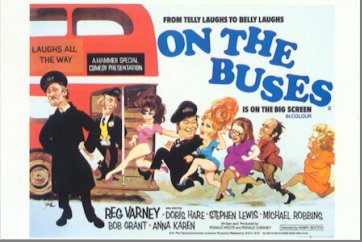I doubt that story. It's hard for me to imagine how one would verify it in any case.
Notice that mass transportation generally uses "on". "On the bus", "on the train", "on the plane".
On the other hand, cars and small recreational airplanes would be "in". While small vehicles that are not enclosed are "on": "on the bike" "on the motorcycle", etc.
My intuition is that it has something to do with the notion of boarding or embarking. I would never say I boarded my car. But to board something is basically to "step onto" something. Again, it depends on how the event is conceptualized. There may be a historical explanation, but again I would be wary of them without substantial empirical support.
Having said that, I think the more likely historical explanation would be that "on" is used for mass transit by analogy with traveling by boat -- the first form of mass transportation.

